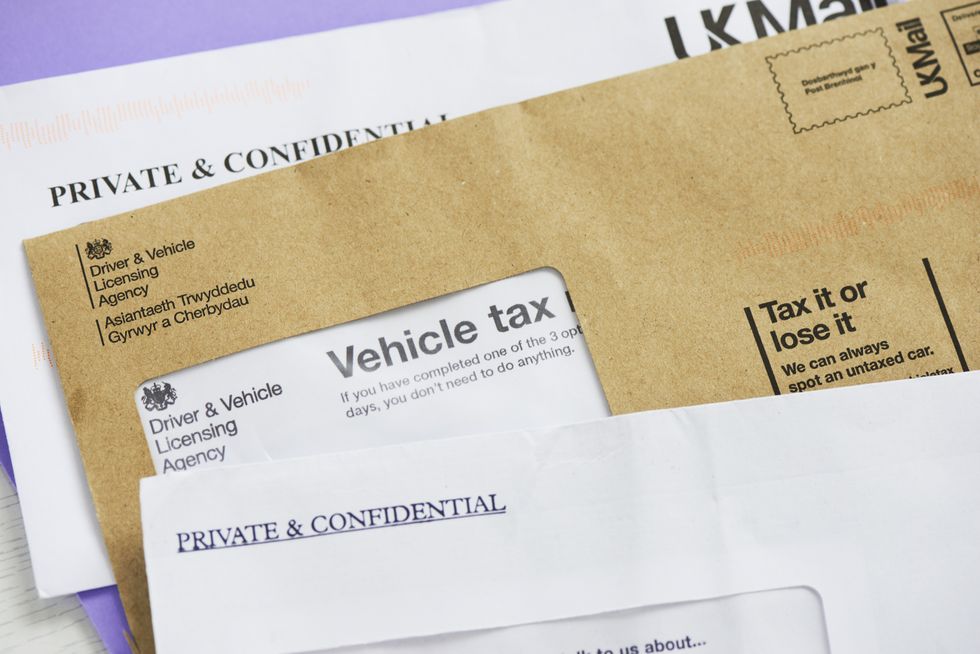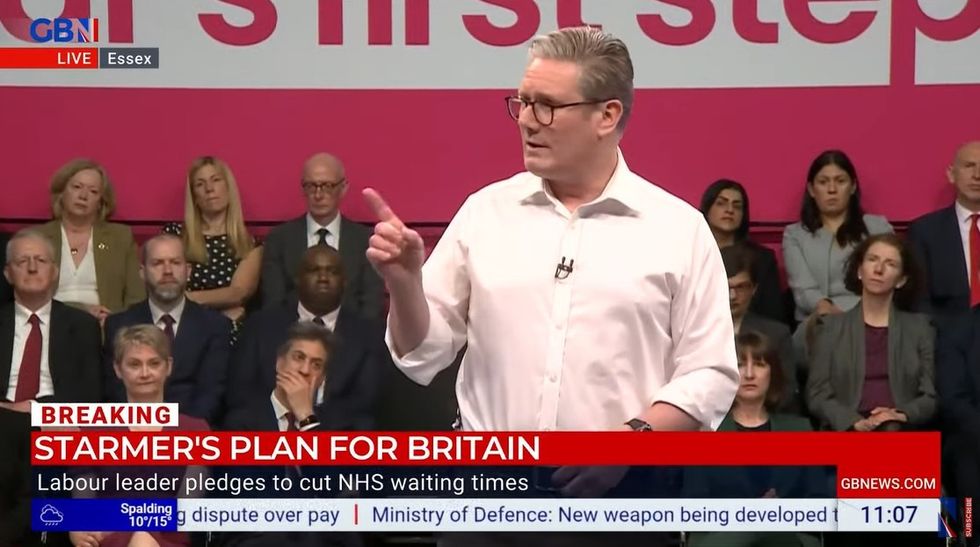Jeremy Hunt can say he wants to cut taxes but the public isn't listening - analysis by Christopher Hope
Jeremy Hunt can say he wants to cut taxes but the public isn't listening - analysis by Christopher Hope
Tax increases were necessary to cover the costs of Covid and capping soaring energy bills
Don't Miss
Most Read
Trending on GB News
The general election campaign has truly started in all but name this week. Political journalists, called to a 9am Tory briefing with Jeremy Hunt, were ushered into a room in Westminster with a podium saying: "Labour's tax rises".
This in itself was unusual as the rules of politics are normally not to mention so overtly an opponent. "We are very happy to talk about their tax rises," muttered a senior Hunt adviser to us as he sat down.
And when the Chancellor appeared it was to remind us of the reason why taxes have hit a post-war high.
It wasn't the Government's fault, he said, pointing to the cost of responding to the Covid-19 pandemic and the energy shock triggered by Russia's invasion of Ukraine.
 The Autumn Statement confirmed that some taxes would increase in line with inflation GETTY
The Autumn Statement confirmed that some taxes would increase in line with inflation GETTYHe had a point - there was an eight-hour gap in the middle of the night between the ending of Covid restrictions in England and the invasion of Russia which led to the energy price shock.
The time was coming - he said - to wind back the tax increases necessary to cover the costs of Covid and capping soaring energy bills, and only the Tories were willing to do that.
Hunt warned that Starmer would "help himself to your and your family’s wallets", should he succeed in the general election.
And CCHQ staffers handed out a 19-page dossier of treasury analysis that singled out 15 different Labour policies – and said their plans to raise money to pay for them are not nearly enough.
LATEST DEVELOPMENTS:
Sir Keir Starmer has put forward his pre-election pitch to voters, offering up six pledges in a speech in Essex
PAThe analysis calculated that there would be a "black hole" of over £10billion per year by 2028-29, which would amount to nearly £38.5billion over the next four years.
This was of course denounced by Labour, which said there were holes in the Chancellor's calculations. (As a side note, No10 confirmed today that the last Labour Government 2005 to 2010 regularly asked civil servants to do this sort of thing and their workings are published on the Government's .gov.uk website).
Yet Hunt had a point. As I said on Thursday, the only commitment among Sir Keir Starmer's first steps to power published on Thursday was to "keep taxes, inflation and mortgages as low as possible".
Hunt was bolder than Starmer. "We will do the hard work and bring taxes back down," he said. That was that though. There was little further evidence as to how he would do this.
And crucially he would not give a "cast iron guarantee" that this would happen. "Can I look into a crystal ball and give a cast iron guarantee? Of course I can't," he said.
Hunt did say there might be another cut in National Insurance at this year's Autumn Statement (the Tories want to scrap it altogether). But he would say if it would be held before a general election.
The Tories are on familiar ground when they try to batter Labour on the party's tax plans.
But the worry must be that the party has cut National Insurance twice in January and April by 2p and been given little credit in the polls.
One reason might be that National Insurance is not seen as a tax like Income Tax is, or people know that so many more are paying the higher rate of income tax because the income thresholds have been frozen.
A third reason is the most worrying for the Tories: That after 14 years voters have simply turned their backs on the Conservatives.
This must be the biggest concern for the party: That for all Hunt warns on what he says are Labour's tax plans, the voters just are not listening.






